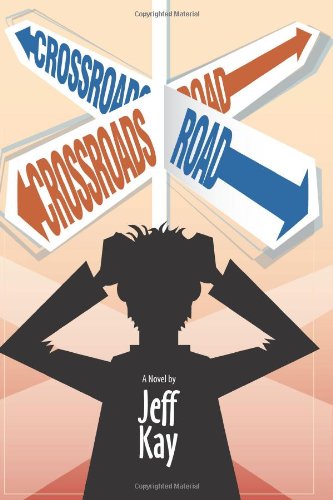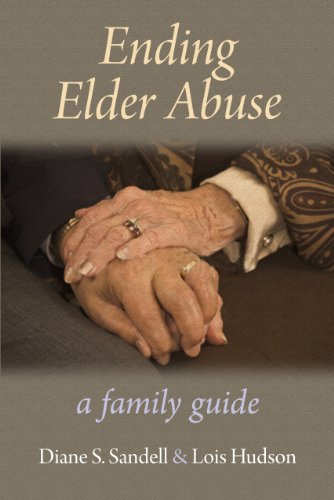Author: Sarah Dunant
Genre: Historical Fiction
Warnings: Rape, Misogyny, Death, Asshole Priests
Pages: 416
Rating: 3/5
"The Birth of Venus" by Sarah Dunant is the coming of age story of Alessandra Cecchi, a young woman in 15th century Florence. Like many mainstream stories about young adults, this book is not for teenagers, or even written by teenagers. Do not ask me why, apparently everyone wants to keep reliving the same four hormone-ridden years in high school. Sadly for us Florentine isn't so hot on women having lives outside of gratefully raising children, so some parts of Alessandra's story are remarkably predictable: she doesn't know anything about sex expect for those tinglings in her britches until marriage, where regardless of her personal feelings or ambitions she settles down to have a kid. No matter how overdone I think coming of age stories are, this one has a few surprises up it's sleeve. For starters, her city is in turmoil and there is a rather scary priest rising to power during all of this.
For one, Durant's characterization was great. All of the characters were as fleshed out as their role required and their interactions were believable, especially the awkward teenage groping! I have my doubts that the idioms and slang are historically accurate, but luckily that's not what I was reading this book for. My absolute favorite character was Alessandra's husband. Since there is a theme of woman's lib running throughout this book, it would have been easy to make him a villain, nor was he some fumbling buffoon. Instead Durant creates a man who is poised, intelligent man who was also suffering under the pressures of Florentine society, with a very human set of blind spots. In my mind he remains the best example of Durant's ability to create complex and empathetic characters in this book.
I typically enjoy historical fiction but this particular period didn't come across as very interesting to me. I'm not sure if it's because I have about as much fascination for paintings as a cat does (which is to say, only if there's a bug on one) or if Durant presented the least appealing bits to me. I feel this way because the location and time period had very little affect on the story itself. Sure, sure she got married when she didn't want to. There are certainly no where else during that era and no other time period in history when women got married because it was expected instead of out of love. Her city fell at least partially under the sway of a radical man. The only obvious way in which this affected Alessandra's life was one or two scenes where she didn't go to church and where she got hassled for walking outside after dark. Hell, Florence getting invaded by an army had only one affect on the story that I could see: Alessandra's wedding date got moved up. This may have been a historical fiction, but the history functioned primarily as a background for the plot. This is not an inherently bad thing, but I do feel it's worth pointing out. It's also totally why I am not mentioning anything about painters.
My main complaint about the plot is that there was not nearly as much action as I was expecting. I respect a good story that doesn't have sweeping story arcs that encompass epic events, but only when I'm not promised them. Even the really dramatic twists were rather underplayed, and everything had a haze of normality to it. This could just be me, but I swear the prequel suggested the book contained a lot more sex (or at least sexual tension) which it failed to deliver on. I kept reading until the last chapter waiting for something more impressive than a few mildly vanilla sexual encounters and perhaps the least awesome explication for her tattoo. Seriously, I can not even imagine a less cool way for Alessandra to have gotten that tattoo.
There is a very reasonable argument to be made that stories full of real, not dramatic people trying to successfully navigate the challenges of their daily lives wouldn't come of as dramatic, to which I say: "Pah." I am reading a book about a teenager. I remember being a teenager, and let me tell you, every day was the Thor-damned end of the world. On the other hand, gentle reader, you may not feel the same. I suppose my final assessment would be: I've had better. If you really enjoy the romances of teenage girls (really?) or 15th century Florence, have I got a book for you. If you have a quiet afternoon or two and nothing to do, go for it. Otherwise find a different book. There are plenty other fish in the sea!
Genre: Historical Fiction
Warnings: Rape, Misogyny, Death, Asshole Priests
Pages: 416
Rating: 3/5
"The Birth of Venus" by Sarah Dunant is the coming of age story of Alessandra Cecchi, a young woman in 15th century Florence. Like many mainstream stories about young adults, this book is not for teenagers, or even written by teenagers. Do not ask me why, apparently everyone wants to keep reliving the same four hormone-ridden years in high school. Sadly for us Florentine isn't so hot on women having lives outside of gratefully raising children, so some parts of Alessandra's story are remarkably predictable: she doesn't know anything about sex expect for those tinglings in her britches until marriage, where regardless of her personal feelings or ambitions she settles down to have a kid. No matter how overdone I think coming of age stories are, this one has a few surprises up it's sleeve. For starters, her city is in turmoil and there is a rather scary priest rising to power during all of this.
For one, Durant's characterization was great. All of the characters were as fleshed out as their role required and their interactions were believable, especially the awkward teenage groping! I have my doubts that the idioms and slang are historically accurate, but luckily that's not what I was reading this book for. My absolute favorite character was Alessandra's husband. Since there is a theme of woman's lib running throughout this book, it would have been easy to make him a villain, nor was he some fumbling buffoon. Instead Durant creates a man who is poised, intelligent man who was also suffering under the pressures of Florentine society, with a very human set of blind spots. In my mind he remains the best example of Durant's ability to create complex and empathetic characters in this book.
I typically enjoy historical fiction but this particular period didn't come across as very interesting to me. I'm not sure if it's because I have about as much fascination for paintings as a cat does (which is to say, only if there's a bug on one) or if Durant presented the least appealing bits to me. I feel this way because the location and time period had very little affect on the story itself. Sure, sure she got married when she didn't want to. There are certainly no where else during that era and no other time period in history when women got married because it was expected instead of out of love. Her city fell at least partially under the sway of a radical man. The only obvious way in which this affected Alessandra's life was one or two scenes where she didn't go to church and where she got hassled for walking outside after dark. Hell, Florence getting invaded by an army had only one affect on the story that I could see: Alessandra's wedding date got moved up. This may have been a historical fiction, but the history functioned primarily as a background for the plot. This is not an inherently bad thing, but I do feel it's worth pointing out. It's also totally why I am not mentioning anything about painters.
My main complaint about the plot is that there was not nearly as much action as I was expecting. I respect a good story that doesn't have sweeping story arcs that encompass epic events, but only when I'm not promised them. Even the really dramatic twists were rather underplayed, and everything had a haze of normality to it. This could just be me, but I swear the prequel suggested the book contained a lot more sex (or at least sexual tension) which it failed to deliver on. I kept reading until the last chapter waiting for something more impressive than a few mildly vanilla sexual encounters and perhaps the least awesome explication for her tattoo. Seriously, I can not even imagine a less cool way for Alessandra to have gotten that tattoo.
There is a very reasonable argument to be made that stories full of real, not dramatic people trying to successfully navigate the challenges of their daily lives wouldn't come of as dramatic, to which I say: "Pah." I am reading a book about a teenager. I remember being a teenager, and let me tell you, every day was the Thor-damned end of the world. On the other hand, gentle reader, you may not feel the same. I suppose my final assessment would be: I've had better. If you really enjoy the romances of teenage girls (really?) or 15th century Florence, have I got a book for you. If you have a quiet afternoon or two and nothing to do, go for it. Otherwise find a different book. There are plenty other fish in the sea!





















